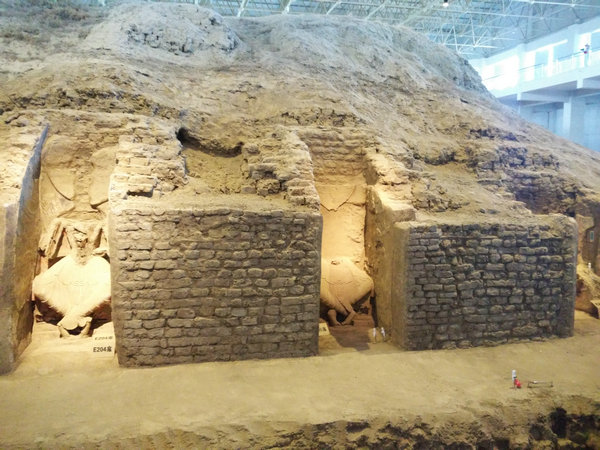Silk Road outpost awaits benefits of modern-day tourism
 |
|
[Photo provided to China Daily] |
Together with 21 sites in China along the Silk Road: the Routes Network of the Chang'an-Tianshan Corridor, the ruins of Bashbaliq City was added to the UNESCO World Heritage list in June 2014.
But despite Bashbaliq making it to the UNESCO list, Guo Zhan, an expert in the field of world heritage protection with the China Cultural Relic Academy, says that Beiting has not been studied properly.
"The city that witnessed the mixing, peaceful coexistence and communication between agrarian and nomadic civilizations is an example of multiculturalism, and proves that China governed the region since ancient times," says Guo.
"However, relevant historical records are not available, and we need a better platform to combine the resources together."
On June 22, the second anniversary of Bashbaliq being listed as a World Heritage site, the Beiting Academy was founded in Jimsar to bring together the country's top scholars and help the institution become a hub for interdisciplinary studies on the site.
Beiting will now be studied independently, says Guo, who is also the director of the organization.
Pointing to the challenges ahead, Guo says that the layout of the city is still unclear, and the authorities also do not know exactly what steps to take to protect the site.
Between 1979 to 1980, a large-scale archaeological excavation unearthed many wood, jade and pottery articles, and archaeologists found many murals in the temple ruins in the west of the city, some of which local resident Xin also saw.
However, due to lack of advanced protection methods then, the colors began to fade, until 2008 when a museum was constructed to cover the temple and control temperature and humidity in the area.
Meng Fanren, 80, was one of archaeology team leaders at the site decades ago.
Now, despite the damage suffered over the years, he is cheered that Bashbaliq is a World Heritage site, and hopes it will give an impetus to conducting more studies on it in the future.
Speaking at the first seminar of the new Beiting Academy, Meng says: "This is the time to re-evaluate the history of the area in the light of China's Belt and Road Initiative.
"Studies on the diplomacy, religions, ethnology, and transportation in the area and its influence on Central Asia and even Europe will provide important references for people."
Meanwhile, though more archaeological work is proposed in Bashbaliq, Guo says it will not be the only focus, and academic research to benefit local communities will also be done.














